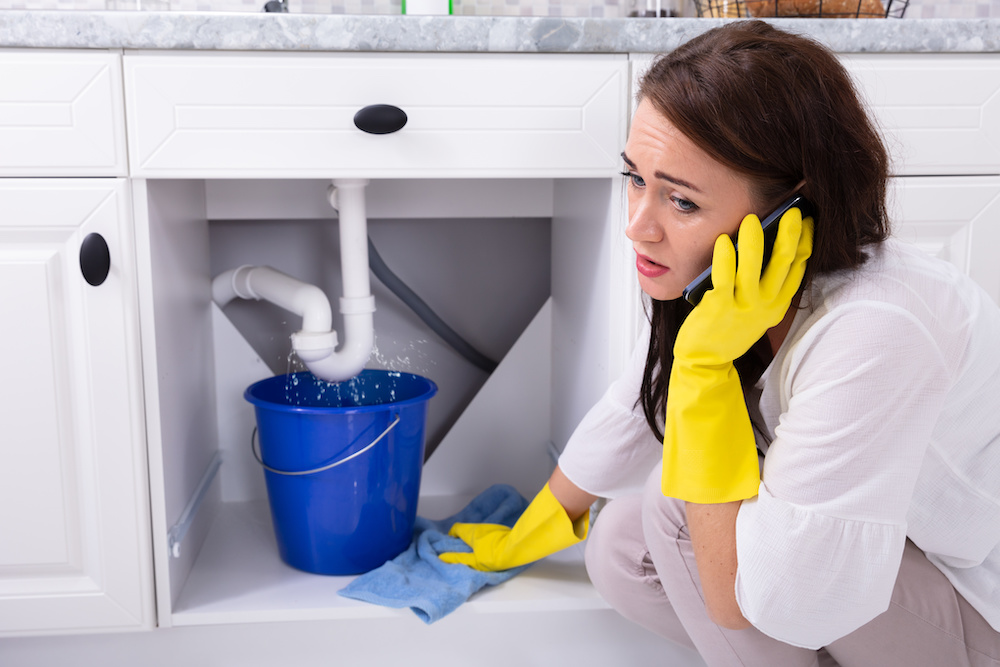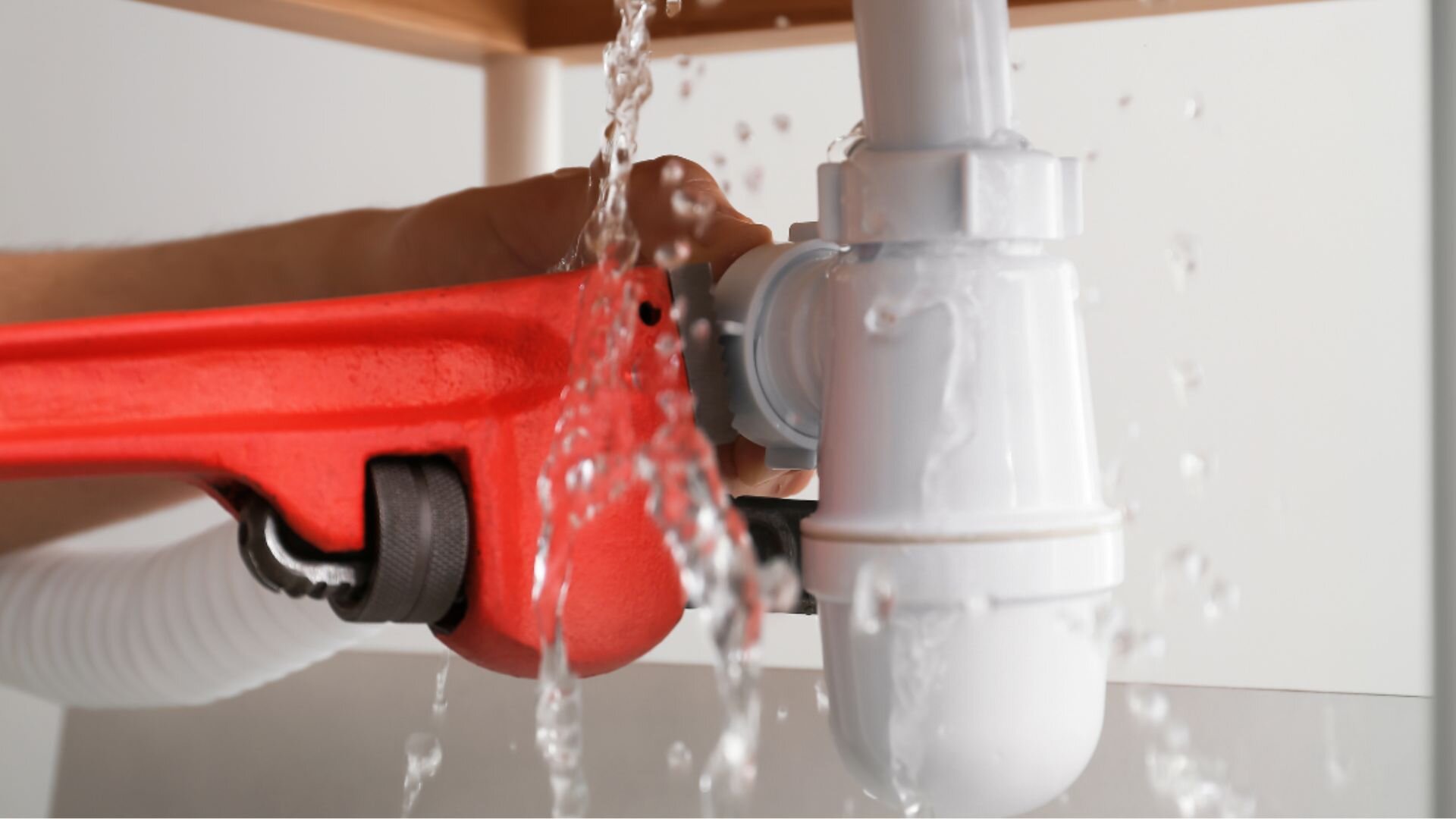How to Handle Emergency Plumbing Issues Before Expert Help Arrives
How to Handle Emergency Plumbing Issues Before Expert Help Arrives
Blog Article
Do you find yourself looking for help and advice concerning Plumbing Emergencies: Tips on What To Do Before?

Pipes emergency situations can strike at any moment, creating stress and potential damage to your home. Whether it's a burst pipeline, a blocked drain, or a leaking faucet, understanding how to handle the circumstance up until a specialist plumbing professional gets here can conserve you from additional difficulties. This post gives essential emergency situation pipes pointers to help you reduce damages and regain control during a plumbing dilemma.
Switch off the Water Supply
The first step in any plumbing emergency situation is to shut down the water. For localized issues, such as a leaking faucet or bathroom, switch off the shutoff near the component. When it comes to a significant leakage or burst pipe, locate your home's main water shut-off valve and turn it off right away. Recognizing the place of these shutoffs in advance can conserve useful time during an emergency.
Address Little Leaks with Short-term Repairs
Little leaks can rapidly end up being considerable problems if left unattended. Use these temporary fixes till specialist aid shows up:
While these repairs aren't permanent, they can help reduce water loss and damage.
Unclog Drains Safely
A clogged drainpipe can be an irritating and unpleasant problem. Right here's exactly how to tackle it:
If these approaches do not work, stay clear of utilizing excessive pressure, as it might worsen the clog.
Handle Overflowing Toilets
An overruning commode can trigger prompt turmoil. Here's what you need to do:
Shut down Your Water Heater
In particular emergency situations, such as a burst pipeline, it's wise to shut down your water heater. This protects against overheating or damages to the unit when water quits flowing. Switch off the power supply to the water heater (electrical or gas) and let it cool off to avoid prospective hazards.
Briefly Quit a Burst Pipeline
A burst pipeline can result in substantial water damage in mins. To mitigate the problem:
Call a specialist plumbing right away to resolve the problem permanently.
Manage Frozen Water Lines Thoroughly
In chillier environments, frozen pipes are a typical emergency situation. If you suspect a frozen pipeline:
Prevent Further Damage
Taking fast activity to lessen damages can save you time and money in the long run. Here's how:
. Have an Emergency Situation Plumbing Kit
Prepare a standard pipes emergency kit to take care of small issues successfully. Your kit should consist of:
Having these tools on hand can make a substantial difference in your capacity to handle emergencies.
Know When to Call a Specialist.
While quick fixes can assist temporarily, particular plumbing concerns need immediate specialist interest. Call a plumbing if:.
Quickly speaking to an expert makes certain the problem is resolved properly and prevents additional complications.
Conclusion.
Pipes emergencies can be overwhelming, yet with the right knowledge and devices, you can manage the circumstance properly up until assistance gets here. By turning off the water system, addressing little leakages, and using momentary solutions, you can decrease damage and maintain your home safe. Bear in mind, these tips are momentary remedies; always seek advice from an accredited plumbing professional to deal with the source of the trouble. Prep work and quick thinking are your finest allies in any kind of plumbing emergency.
How to Manage a Plumbing Emergency Until Help Arrives
Plumbing emergencies can be stressful, but keeping calm can help minimize damage to your home. Below are steps to handle a plumbing emergency, but always call a plumber for assistance. It’s safest to have a 24/7 emergency plumbing team readily available, so keep their number in your contacts list for easy access.
Shut off the water: Act quickly to turn off the water source during an emergency. For toilets, turn the water valve at the base or behind the commode. For larger emergencies or flooding, turn the main valve in your home clockwise. Turn off the water heater: Prevent damage to your water heater by switching it off after shutting off the main valve. If you have a gas water heater, turn off the gas supply first. Must Open drains and spigots: Even after shutting off the main valve, your pipes may still have water. Reduce potential damage by turning on spigots outside your home and clearing water with the garden hose. Avoid using chemical cleaners during an emergency. Address small leaks: If you find a small leak, use the plumber’s tape or place rags and towels around the pipes to prevent further damage. Inform the plumbers about these leaks upon their arrival. Call for help: Remember to call a plumber as soon as the emergency occurs. An early call can provide initial assistance and help determine if the situation is too dangerous. If professionals or government officials advise you to leave your home during an emergency, listen and prioritize your safety. Plumbing Emergency Examples and Immediate Fixes
Dealing with a plumbing emergency can put enormous stress on homeowners, leaving them uncertain about the steps to take. This detailed guide delivers concise, direct advice for swiftly tackling typical plumbing dilemmas. It includes actionable measures for dealing with everything from burst pipes to toilets that won’t overflow, helping reduce harm and quickly bring back normalcy.
Burst Pipes
Burst pipes result from intense pressure from various causes like freezing temperatures, corrosion, or physical damage that leads to a pipe rupturing.
Solutions:
Immediately shut off the main water supply to halt the flow of water. Drain the remaining water in the system by opening all cold water taps to prevent further damage. For a temporary fix, use a pipe repair clamp or wrap a piece of rubber around the burst section and clamp it tightly with hose clamps. Call a plumber for a permanent fix. Severe Leaks in Faucets or Toilets
Solutions
Locate and close the local shut-off valve to stop the water flow to the leaking fixture. Place a bucket underneath to catch any drips and reduce damage. In the case of a toilet, lift the float in the tank to prevent more water from entering the bowl and turn off the water supply valve. Contact a plumber to address the problem correctly. Leaking Water Heater
Turn off the water supply to the leaking water heater. If it’s electric, switch off the power at the circuit breaker; if it’s gas-powered, turn off the gas valve. Avoid attempting to repair yourself, as this may involve significant danger and complexity. Seek the assistance of a professional plumber who can provide a safe and appropriate resolution. https://www.showtimeplumbingllc.co/expert-tips-for-managing-a-plumbing-emergency-until-help-arrives

We hope you liked our topic about Expert Tips for Emergency Plumbing Repairs. Thanks so much for taking the time to browse our post. Sharing is caring. Helping others is fun. Thanks so much for your time invested reading it.
More Details Report this page